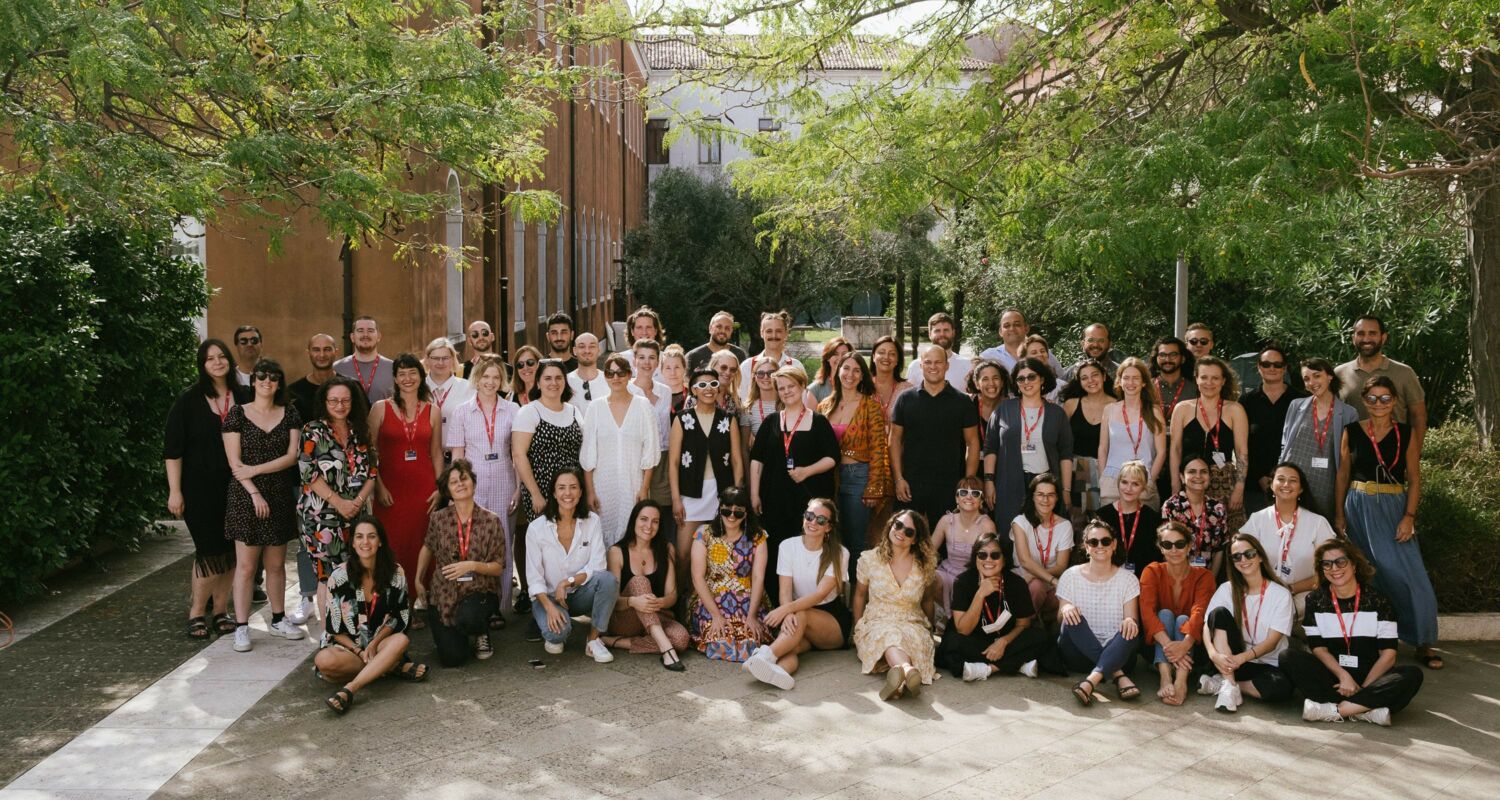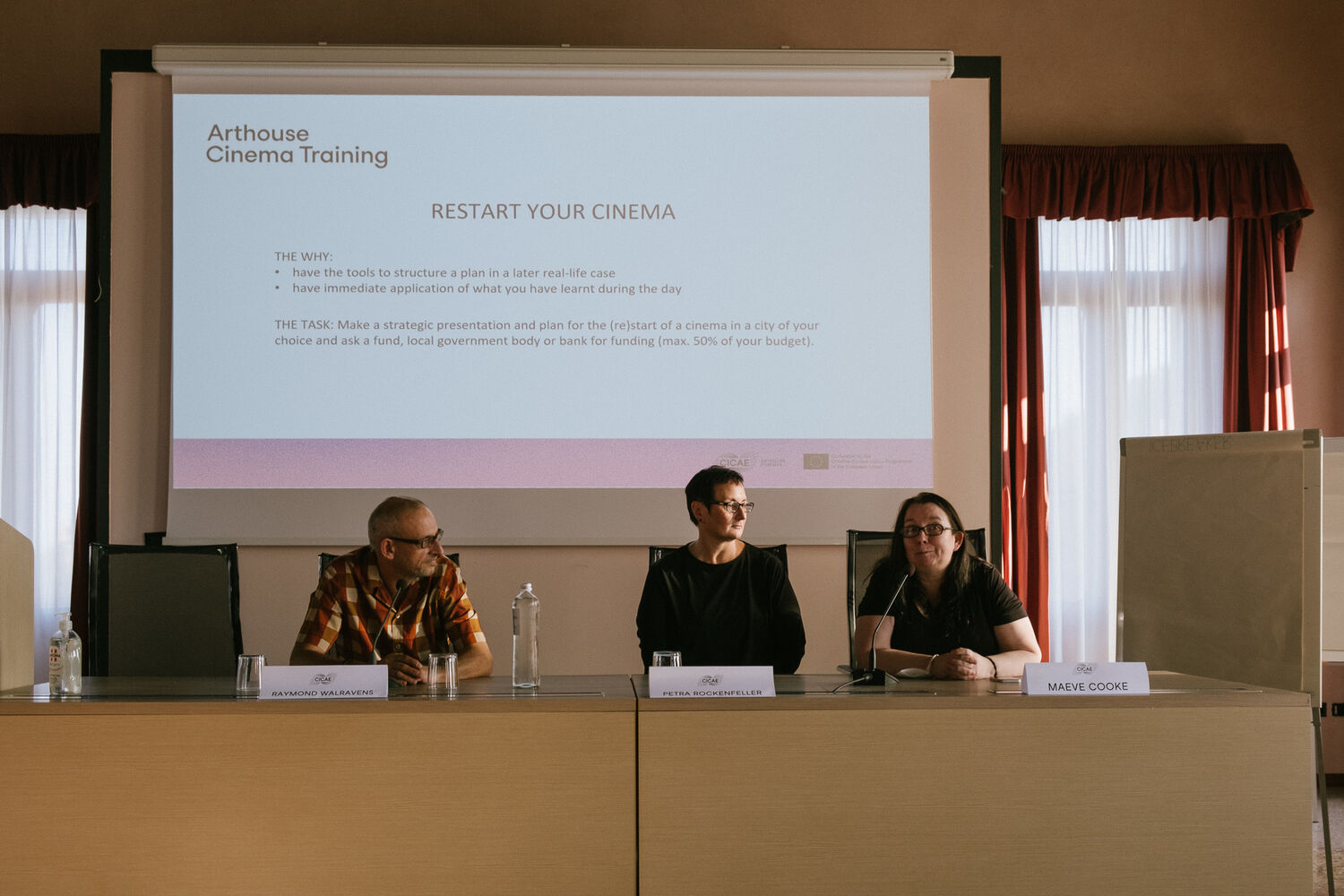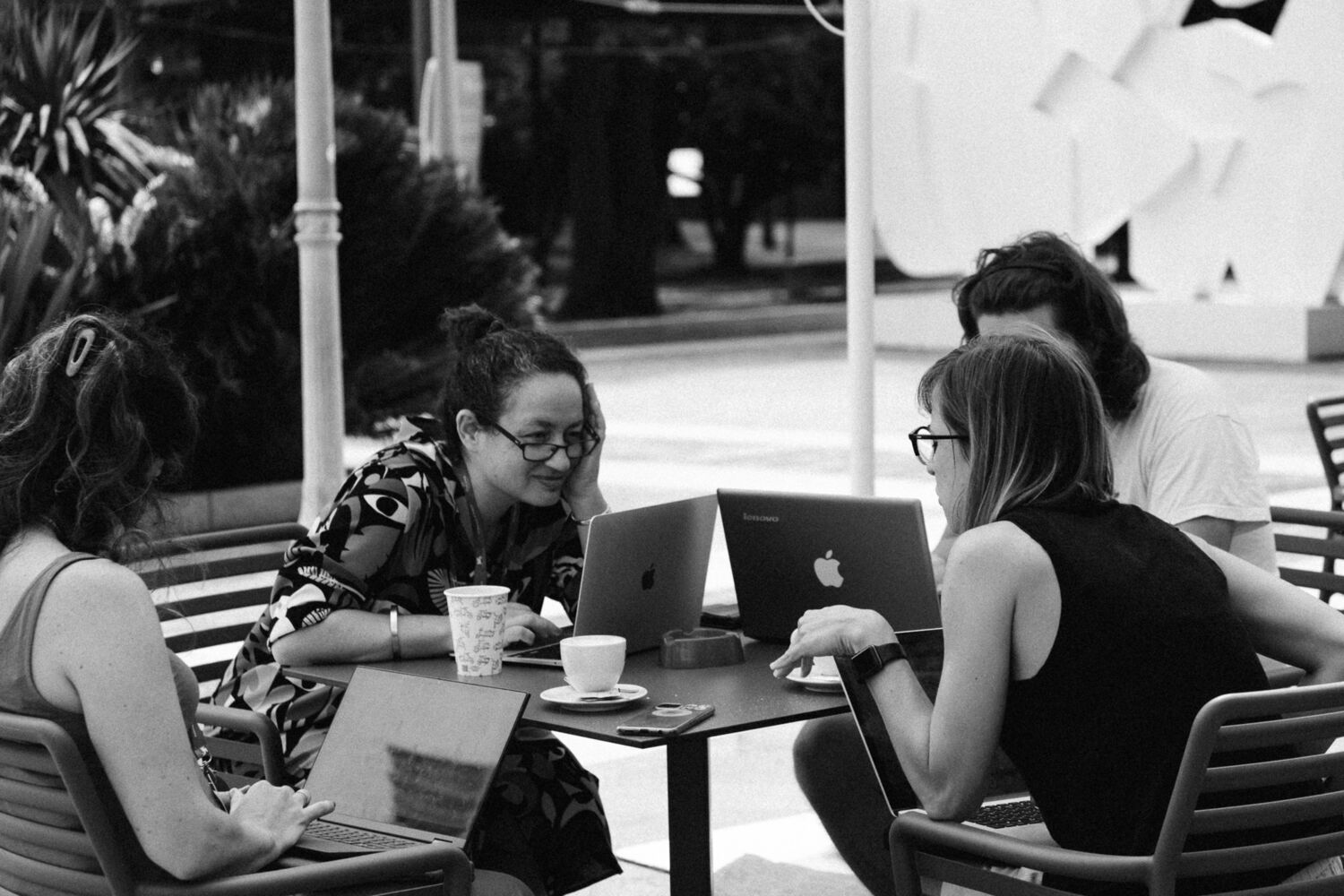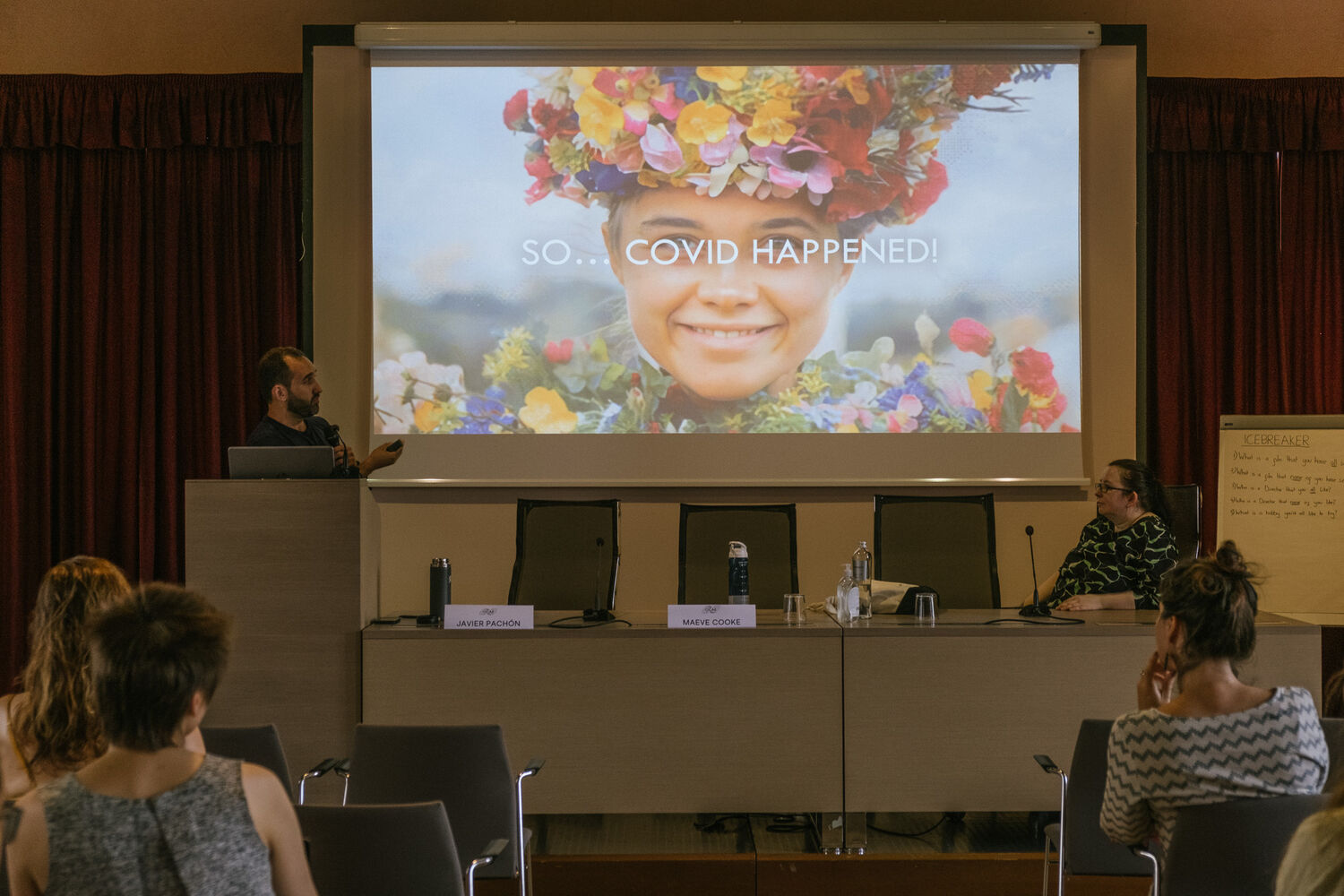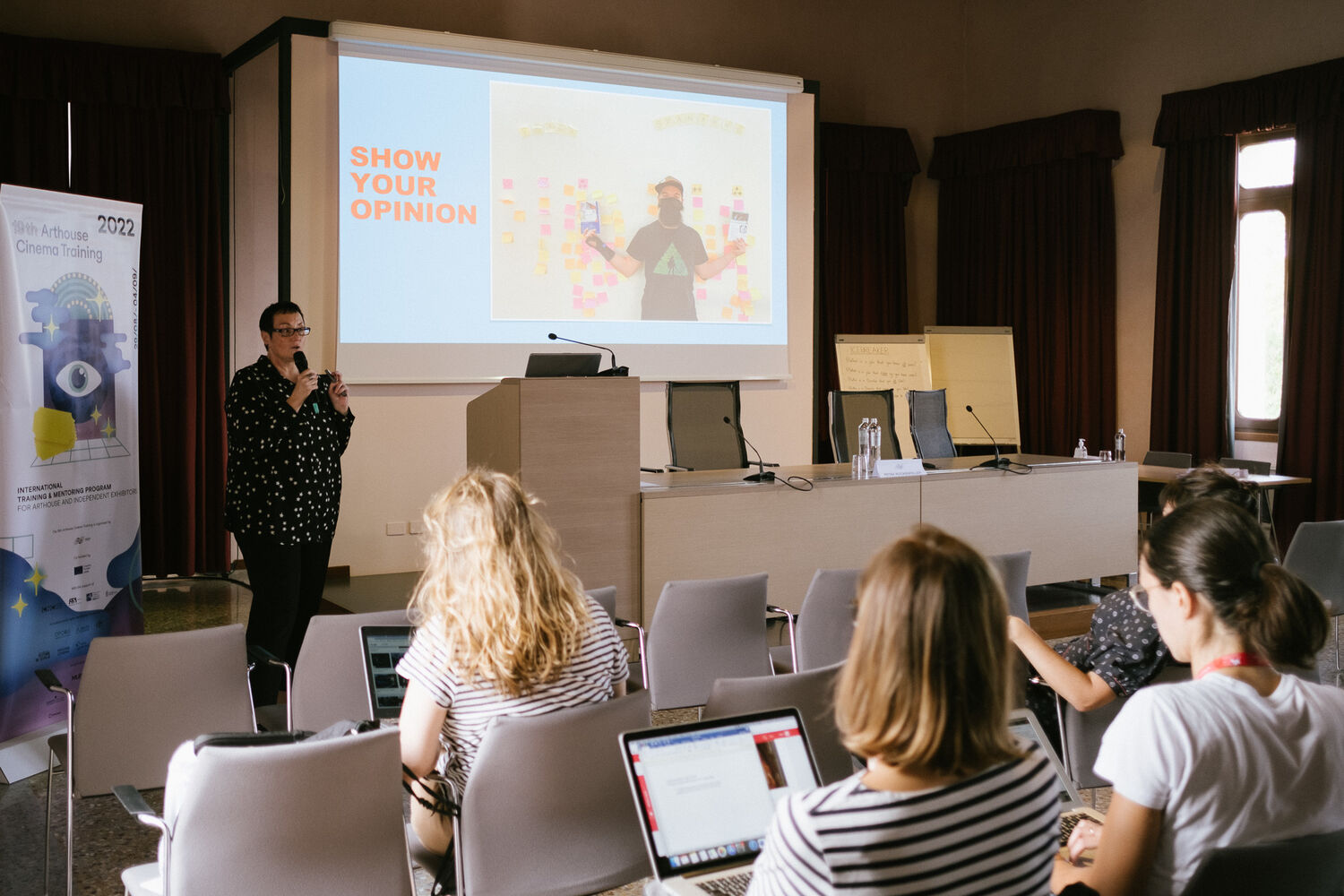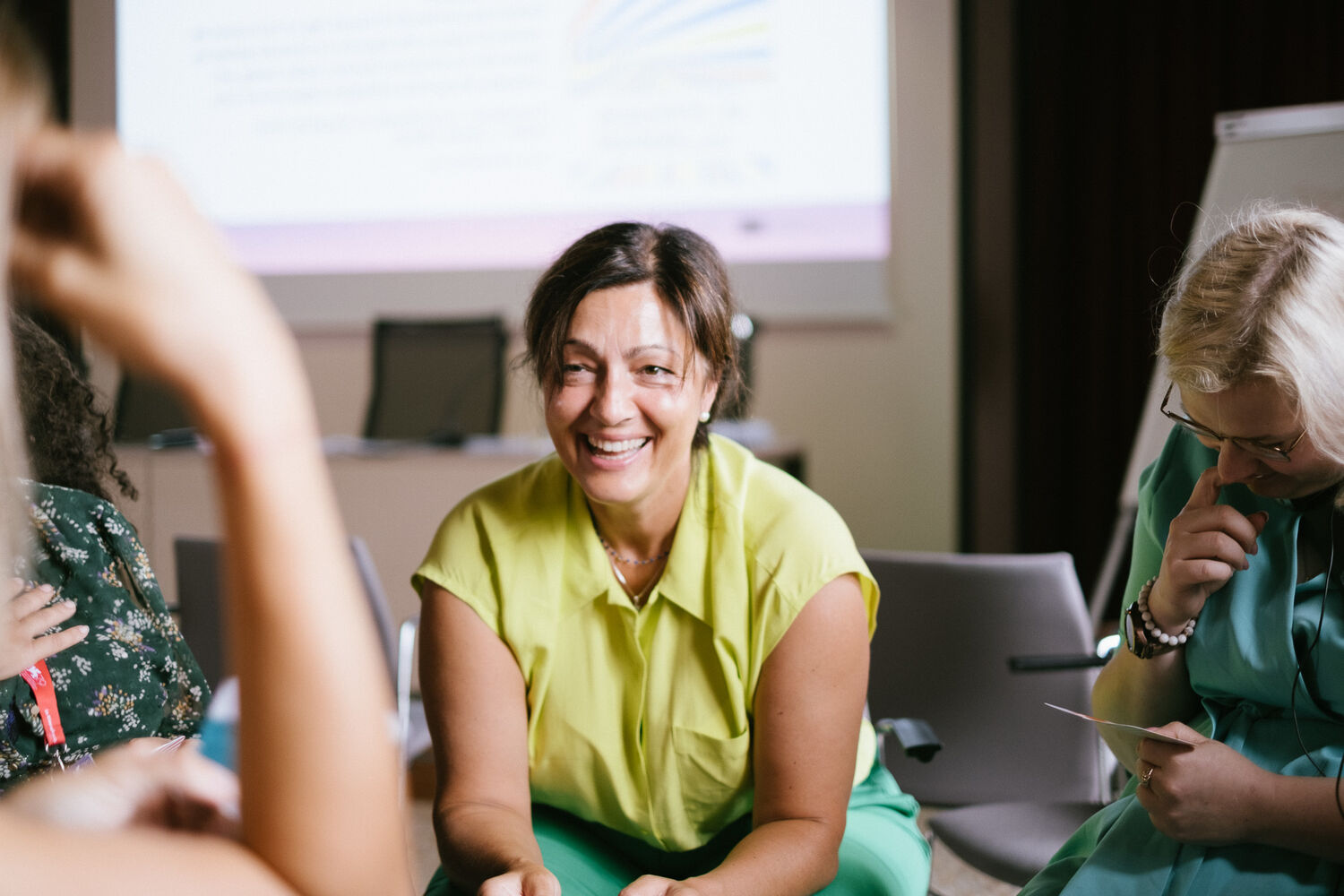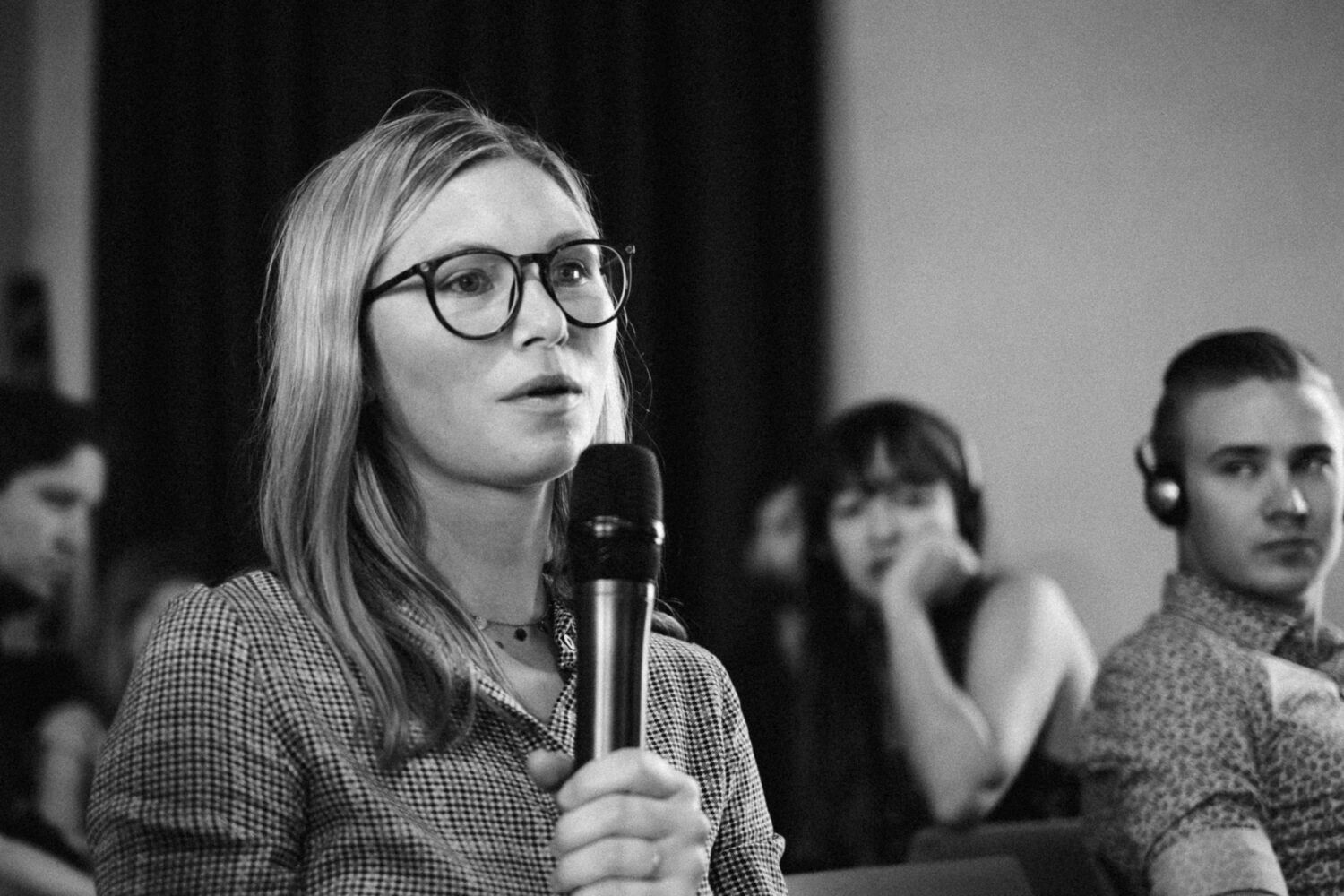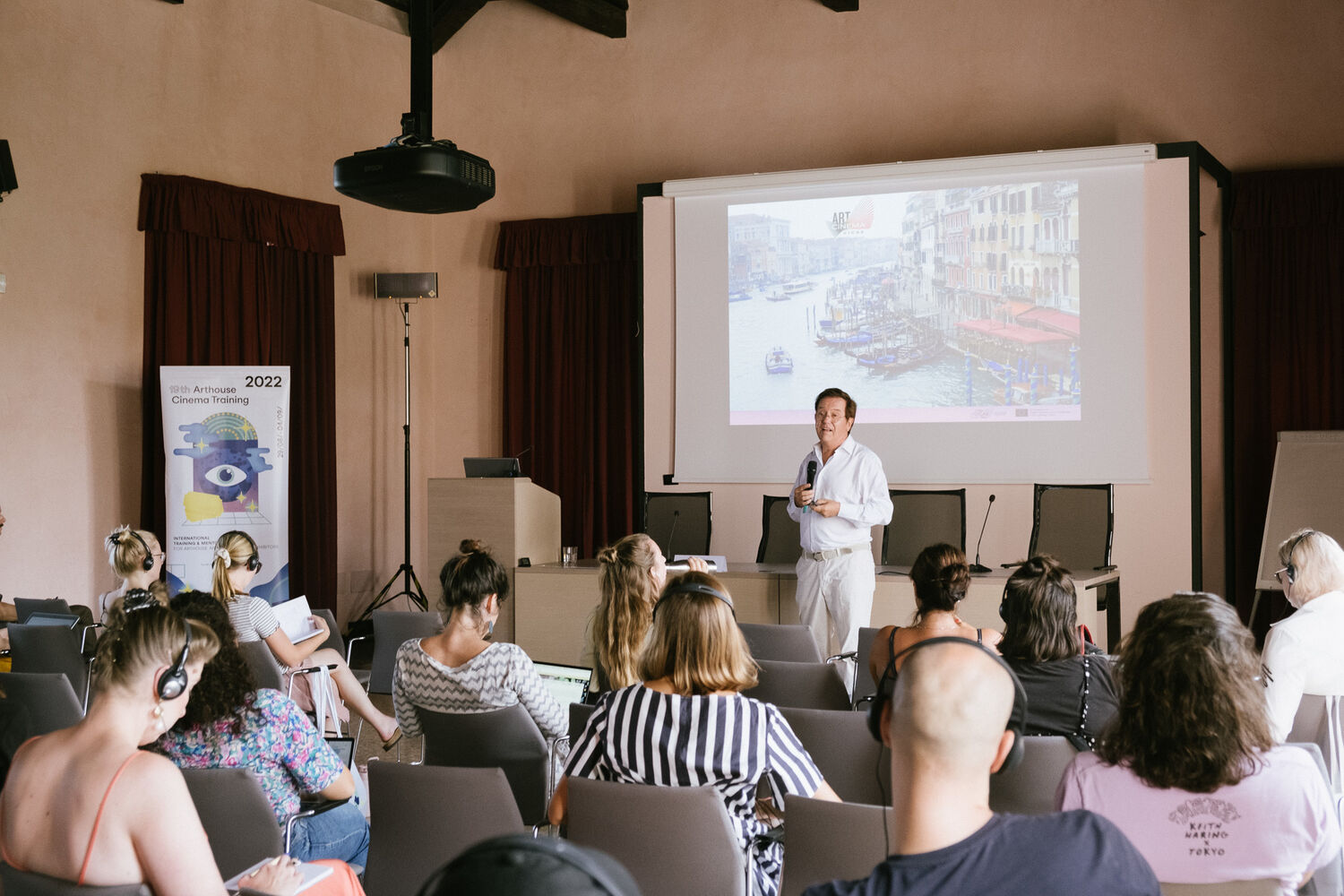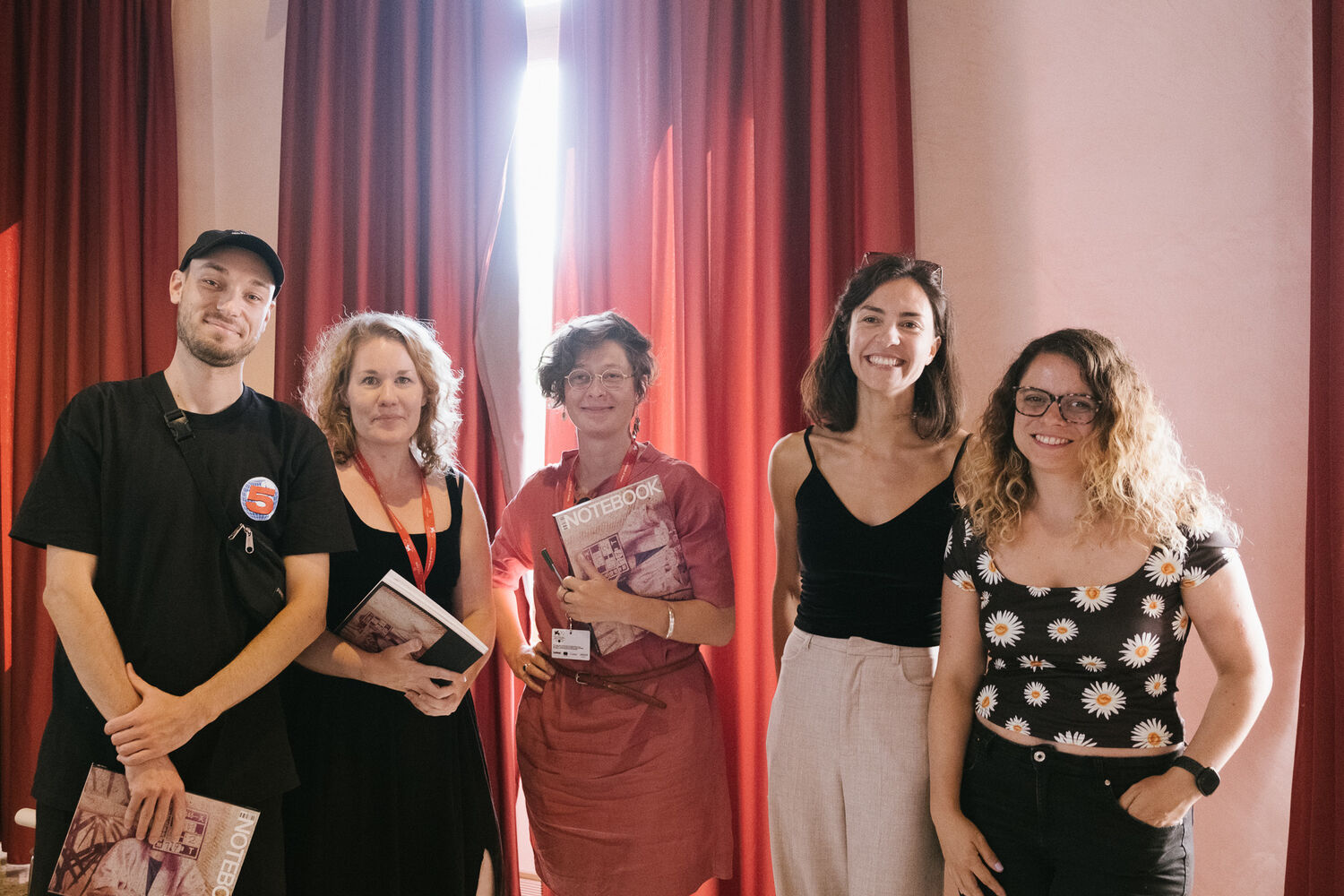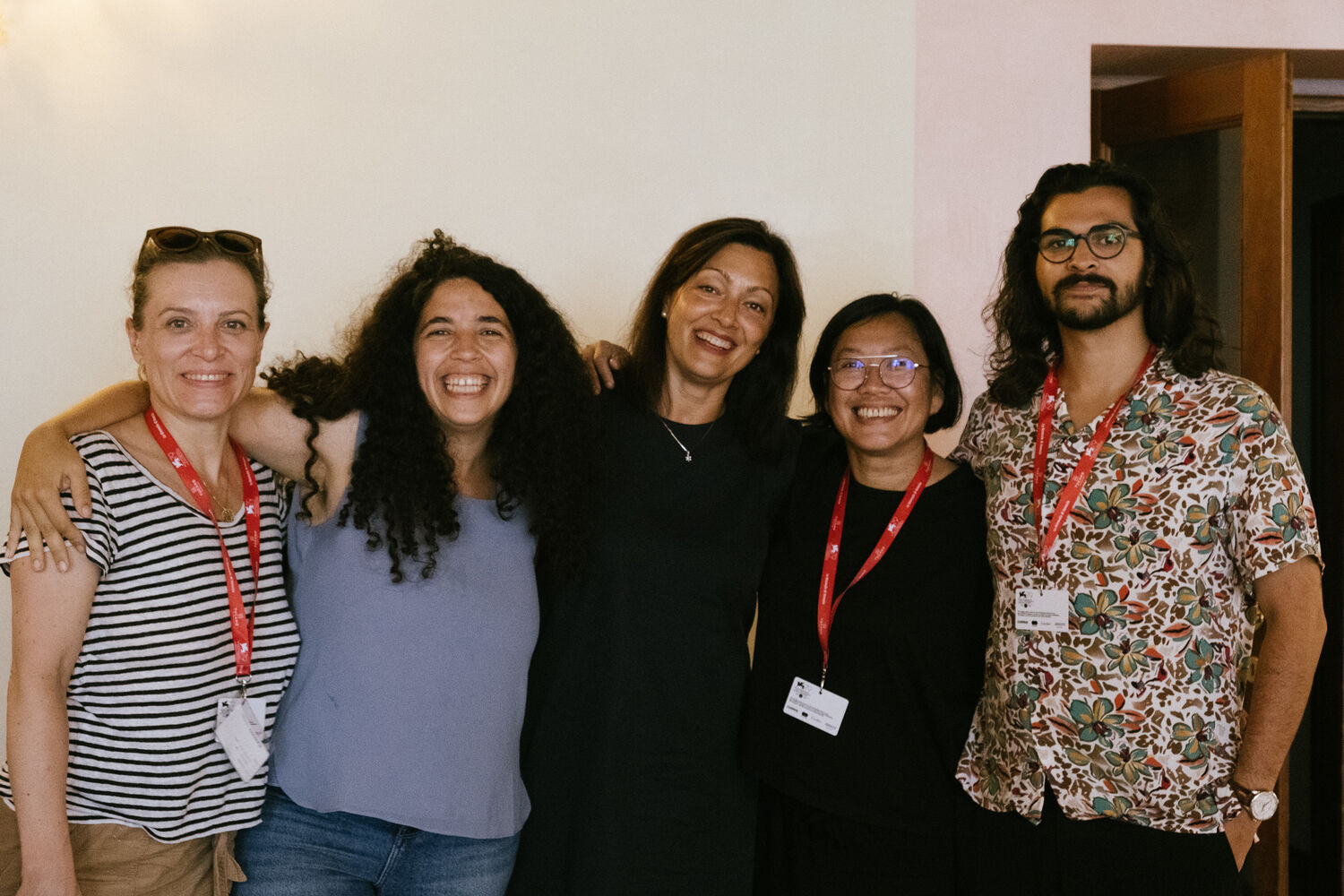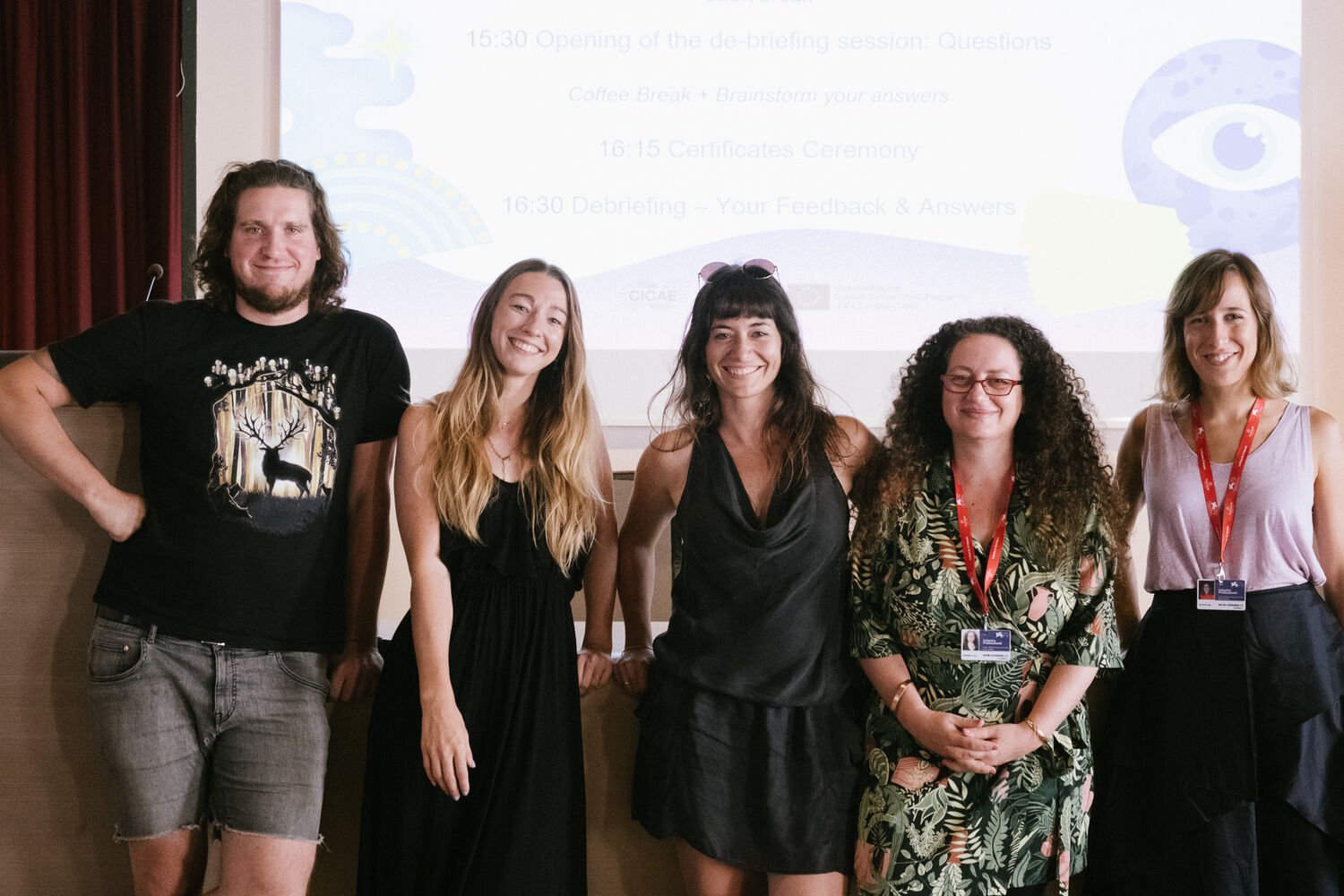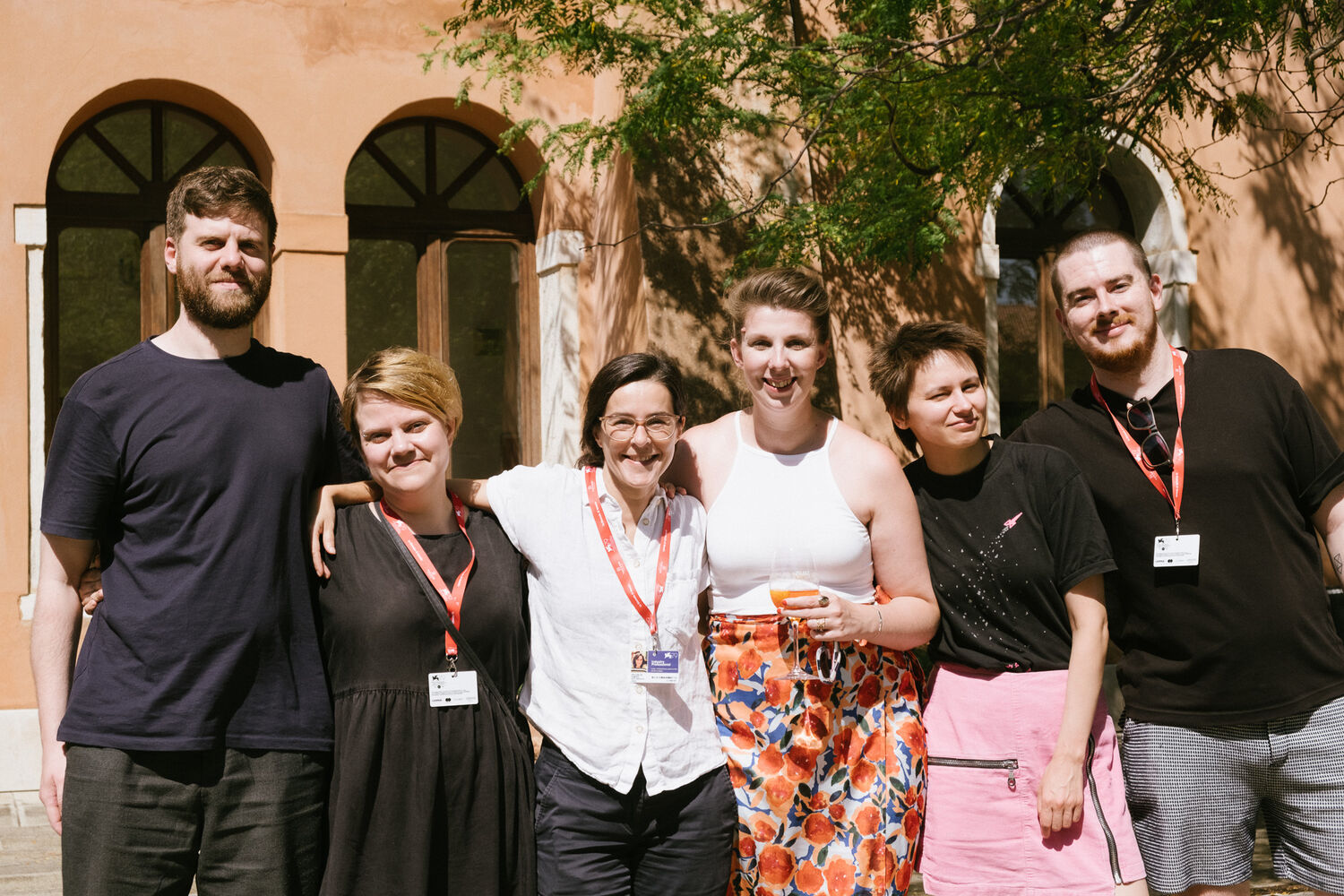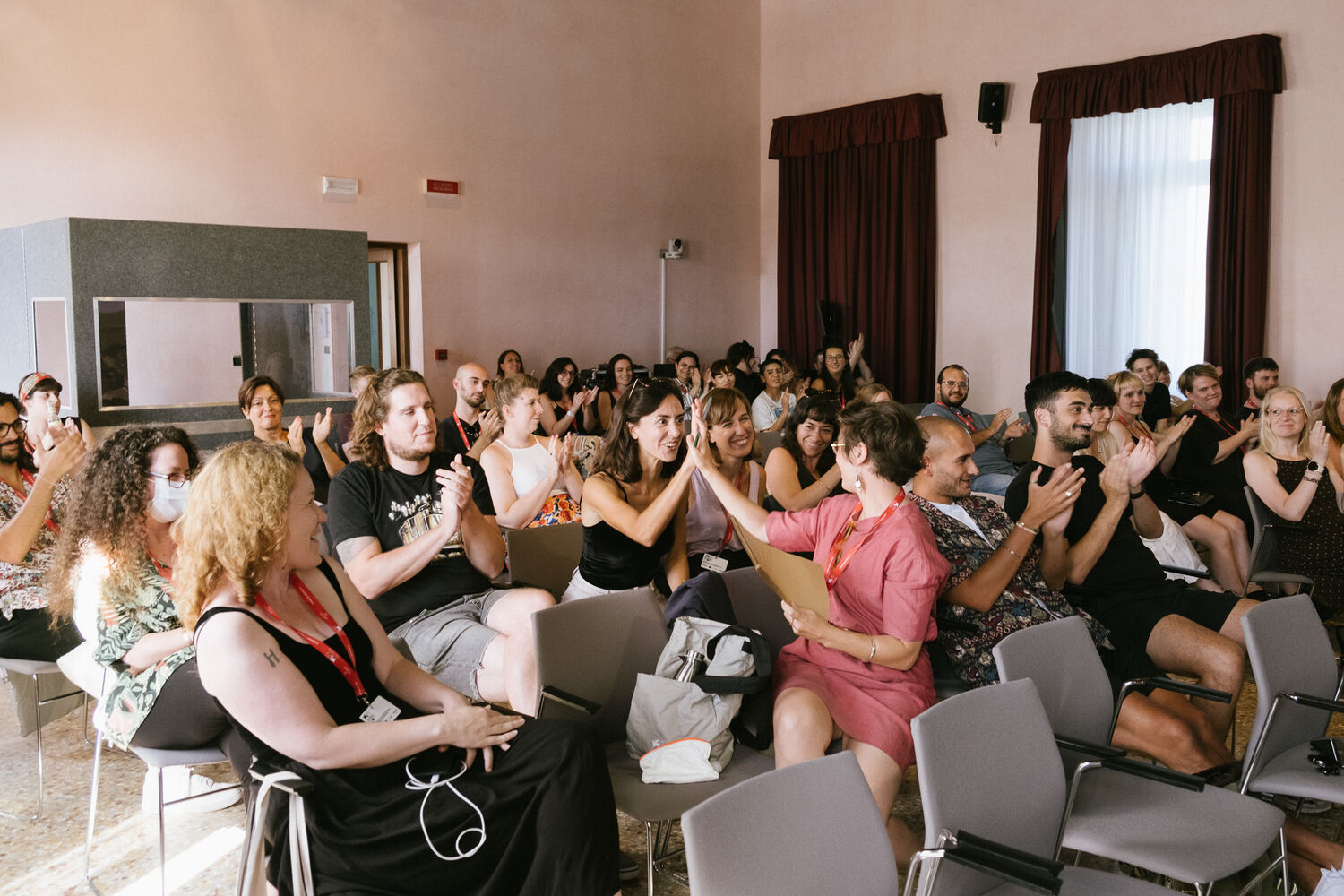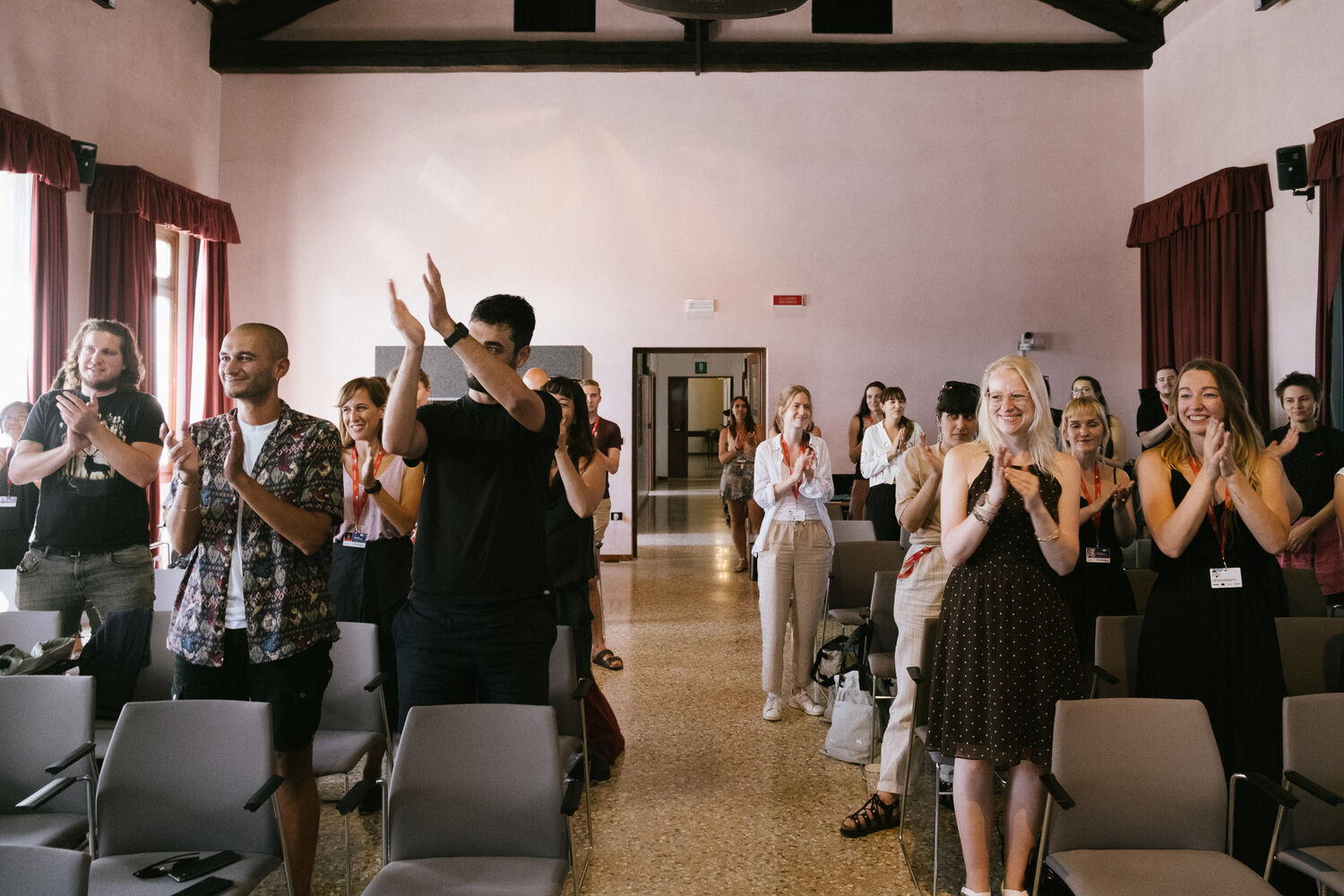Diversity and audience-centred approach at heart of the 19th Arthouse Cinema Training
• Training
The 19th edition of the Arthouse Cinema Training (ACT) organized by the International Confederation of Arthouse Cinemas – CICAE – brought together film professionals from over twenty nationalities in the Venetian Lagoon, on San Servolo between August 29 and September 4, 2022.
The programme was split between two groups of participants: thirty-five residential trainees and six of the seven participants of the first Mentoring program started by the CICAE.
Following an opening event in the evening of August 29, headed by Dr. Christian Bräuer, president of the CICAE and Pascal Diot, Head of the Venice Production Bridge, the participants had the opportunity to follow a week of lectures, case studies and workshops structured around the essential topics of arthouse exhibition and management.
09.09.2022
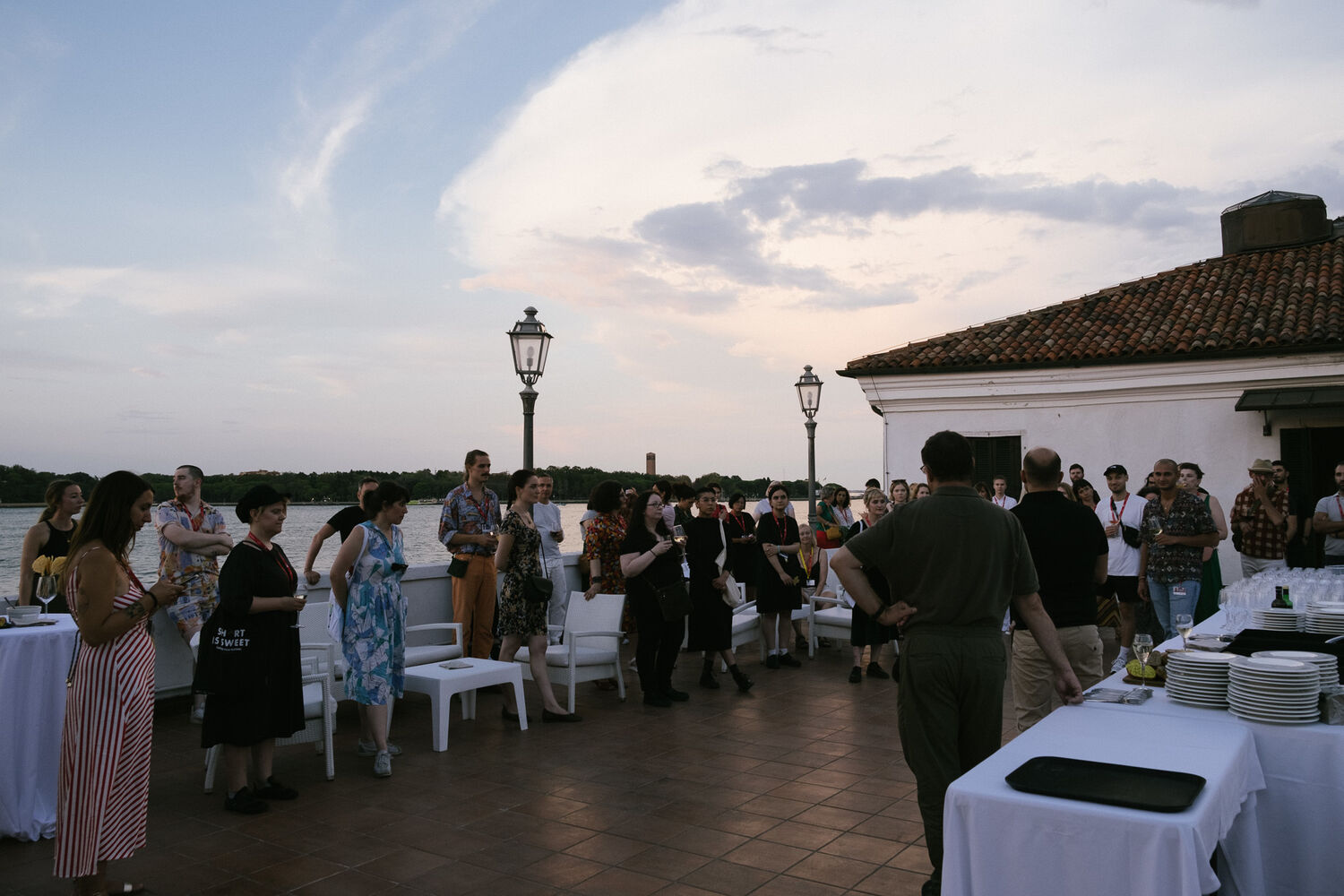
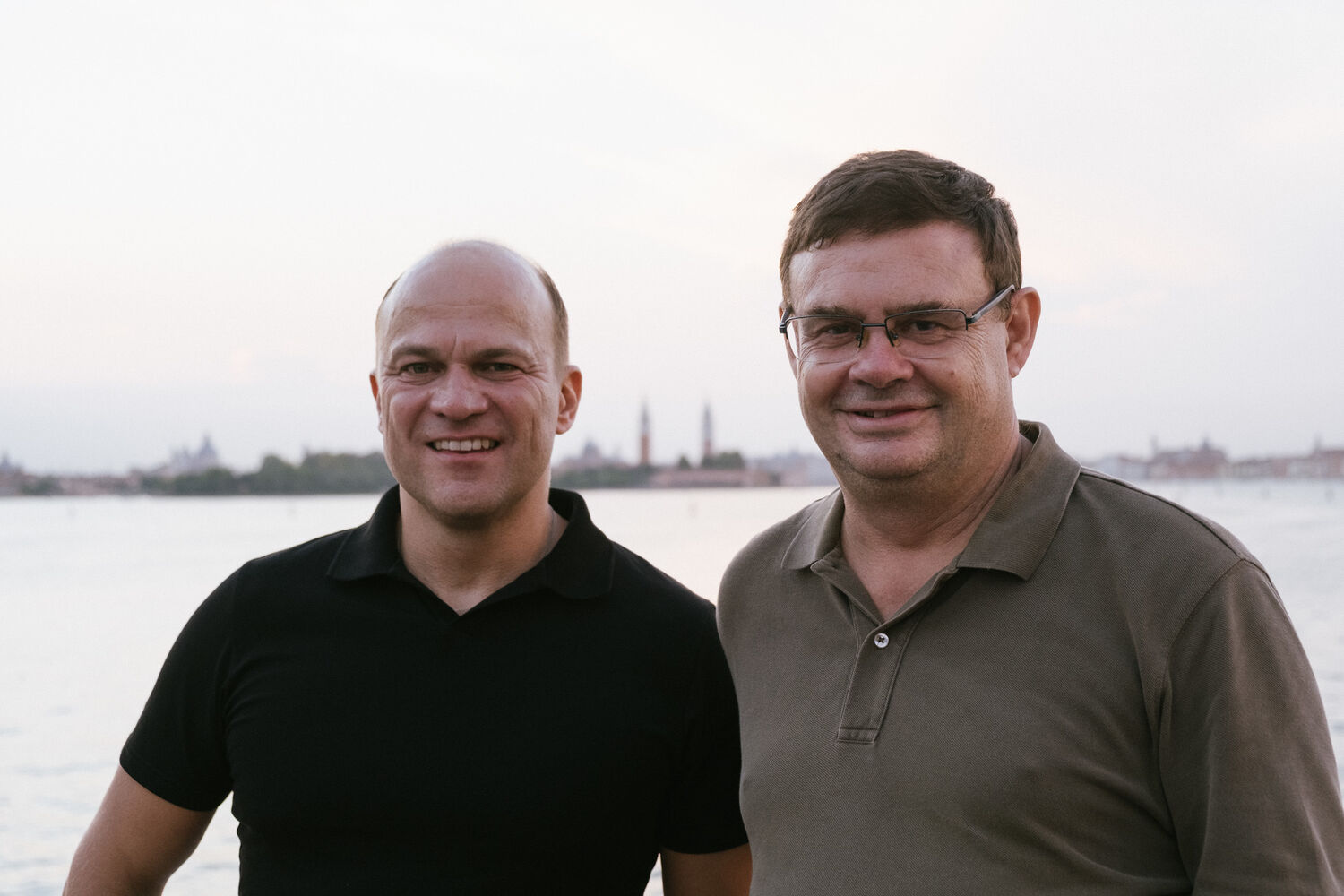
The work revolved around questions of cinemas as physical spaces, the importance of the audience experience, the role of data in the marketing strategy and programming, as well as a focus on young audience development and inclusivity in cinemas. Marketing, young audience projects, membership schemes and mediation case studies enriched the programme to offer concrete examples.
However, the biggest achievement of the attendees was the simulation of the development and pitching of 5 year-projects of restarting cinemas in different parts of the world – in the framework of the “ReStart Your Cinema” workshop helmed by the workshop leaders Maeve Cooke of access<CINEMA, Petra Rockenfeller of Lichtburg Filmpalast and Raymond Walravens of Rialto Cinema.
-
![]()
Workshop Leaders -
![]()
Participants working group -
![]()
360° of Cinemas with Javi Pachón -
![]()
Young Audience Development -
![]()
Participant at the 19th Arthouse Cinema Training -
![]()
Discussion during the panels -
![]()
Laurent Creton presenting trends in Cinema Economics
Based on feedback from earlier editions, Boglárka Nagy, Head of Studies and Katriina Miola, Programme Coordinator have decided to give greater importance to workshop activities and a greater involvement of the participants, the speakers, the trainers and the tutors; this could be observed in sessions such as the design thinking workshop, run by former alumni and CICAE member Bruno Castro of Alvalade Cineclube (Portugal), intended to start the creativity of the attendees in view of developing the restart of cinema projects, and a storytelling workshop held by Claudia Pacher, communication consultant from Austria, drawing attention to the “how” of the online communication strategies.
A conversation focused on gender equality, mediated by both Pacher and Camilla Baier, co-founder of Invisible Women collective, started discussions on how to make the working environment of the film industry a more equitable place for women.
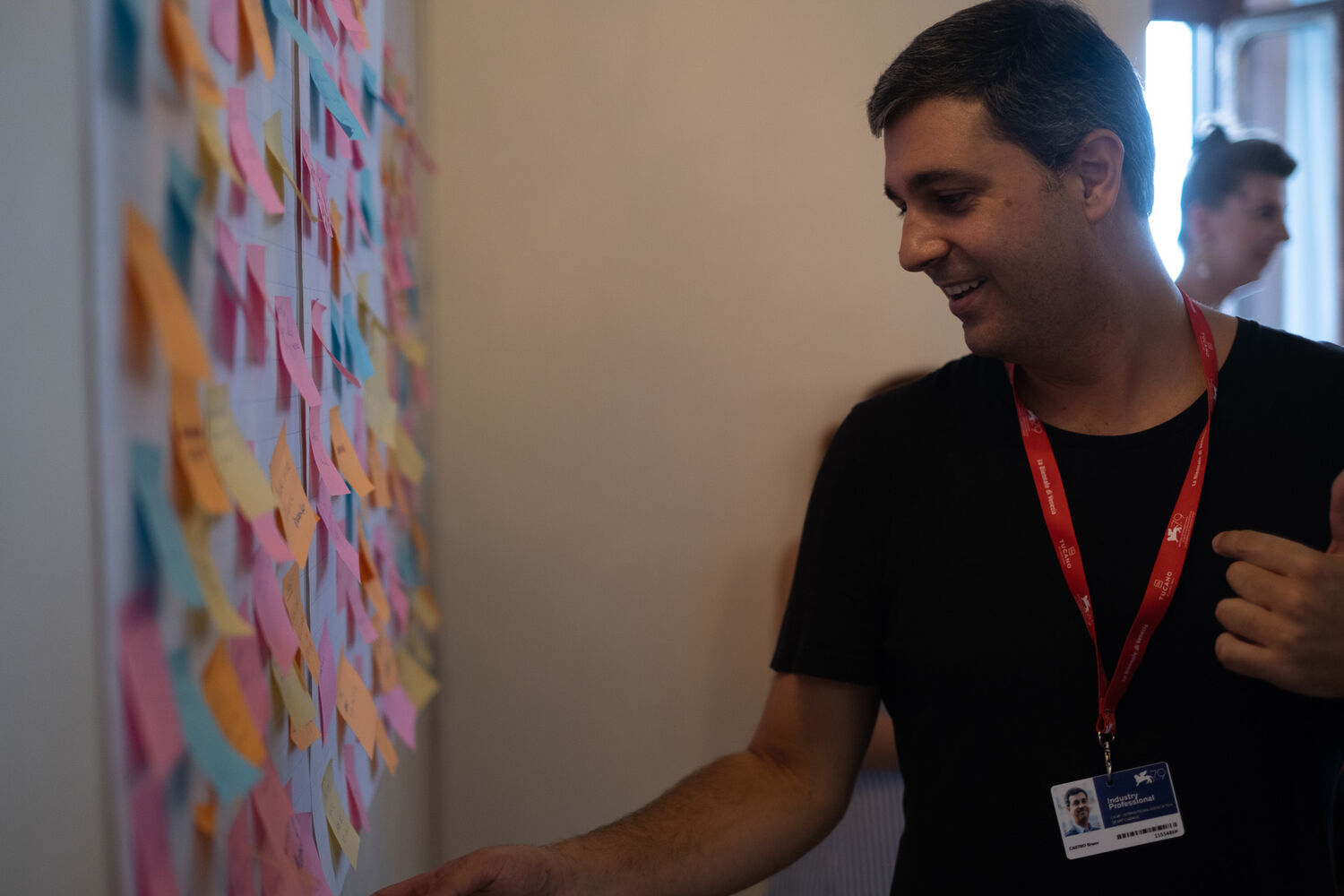
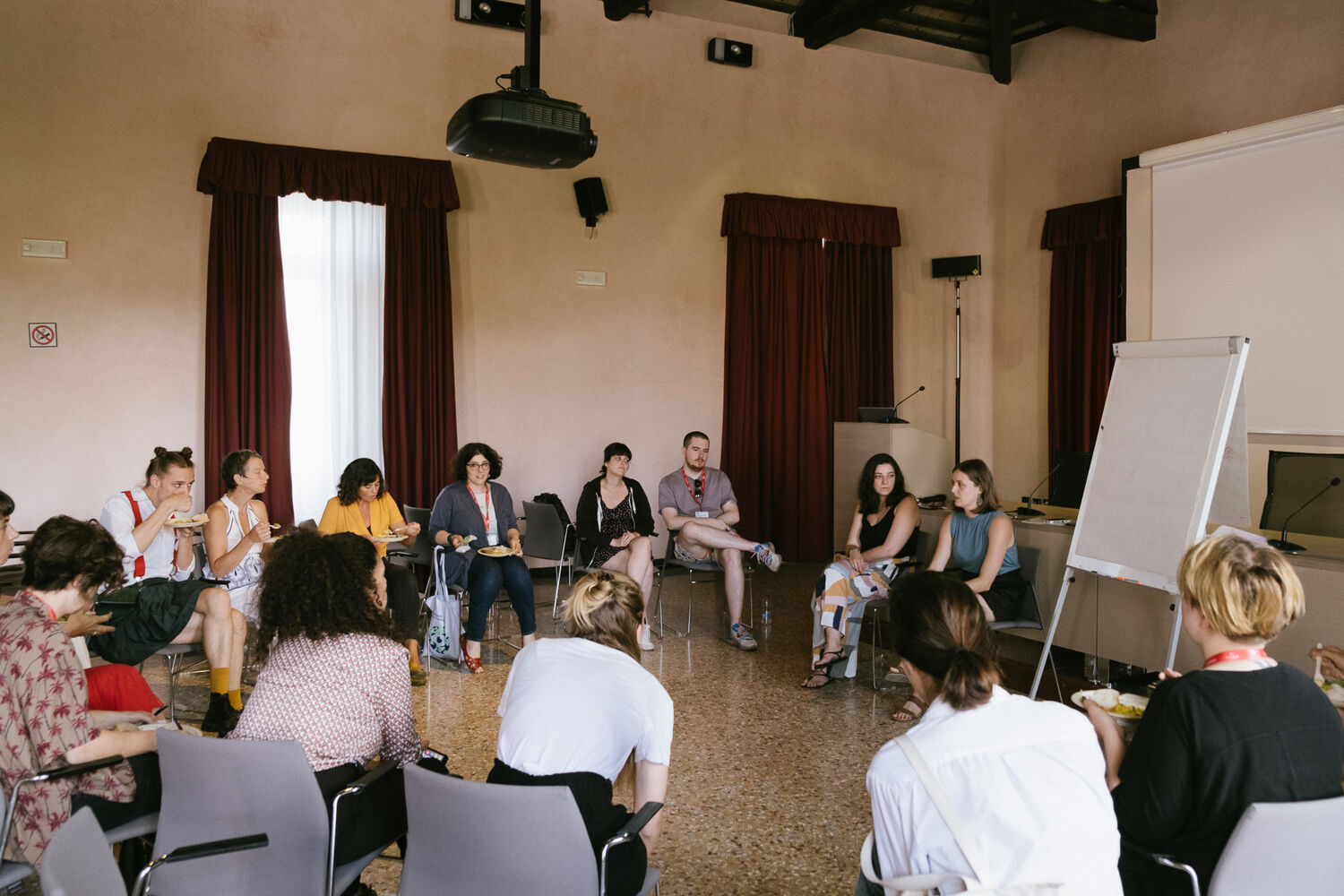
On September 2, the ACT participants moved to Lido di Venezia for a public film industry panel, “Visibility for Diversity - Promotional Strategies for Arthouse Cinema”, organised by the CICAE in the framework of the Venice Production Bridge. The panel brought together representatives of different sectors of the film industry to look at the shifts in the arthouse cinema landscape, to identify strategies to strengthen the position of arthouse films and to create more visibility for a diverse range of titles through improved marketing strategies and partnerships.
The keynote speaker, MEP Salima Yenbou spoke about the importance of reviving arthouse cinemas as they have an important role in defending film diversity. The following discussion of Frédéric Boyer, Artistic Director Tribeca Film Festival and Les Arcs Film Festival, Christian Bräuer, CICAE president & CEO of Yorck Kino Gruppe, Carolina Jessula, Head of Marketing - The Match Factory, Alen Munitic, Founder of Kino Mediteran and Ada Solomon, producer microFILM, deputy chairperson European Film Academy, executive president EWA Network was moderated by Matt Mueller, editor of Screen International.
Some of the main topics addressed were the need for creating a fair market, but also promoting films in such a way as to take into account the diversity of the audiences the films address. Data and digital marketing are at the center of successful promotional strategies, especially when coordinated throughout the chain of rights and across several territories. It was also discussed that the industry is becoming overwhelmed with content and the quality of works presented is suffering from it. Pricing policies adapted to the situation of the audiences will be necessary to complement promotional efforts.
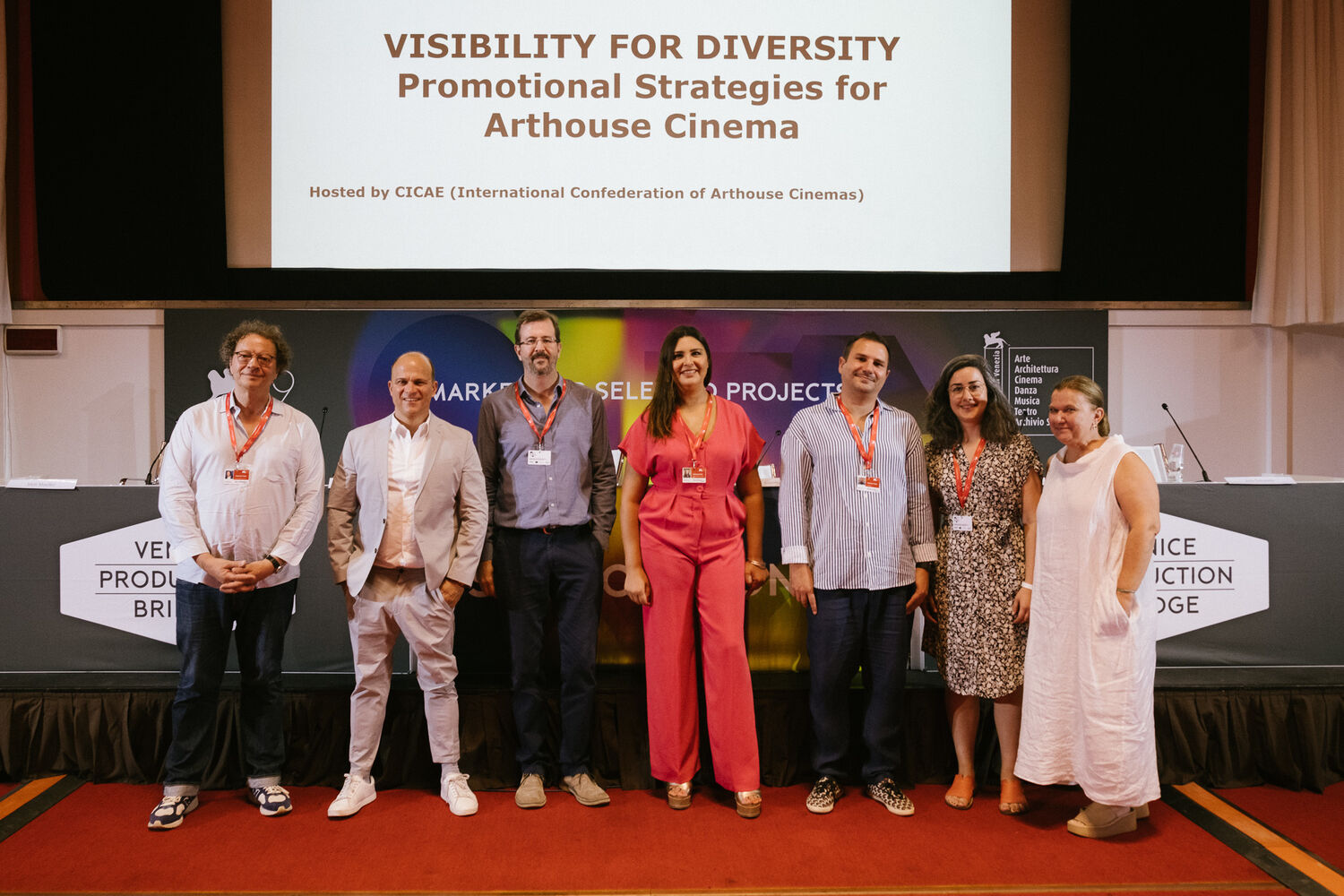
The mentees, having been backed strongly by their dedicated mentors (Maeve Cooke, Augustina Lumi, Javier Pachón, Grainne Clarke, Carmen Slijpen, Jean-Marc Quinton), have passed a catalysing phase through the workshops and sessions in Venice. They are now sprinting towards the results presentation of this very first Arthouse Cinema Mentoring Programme edition, to be discussed in October.
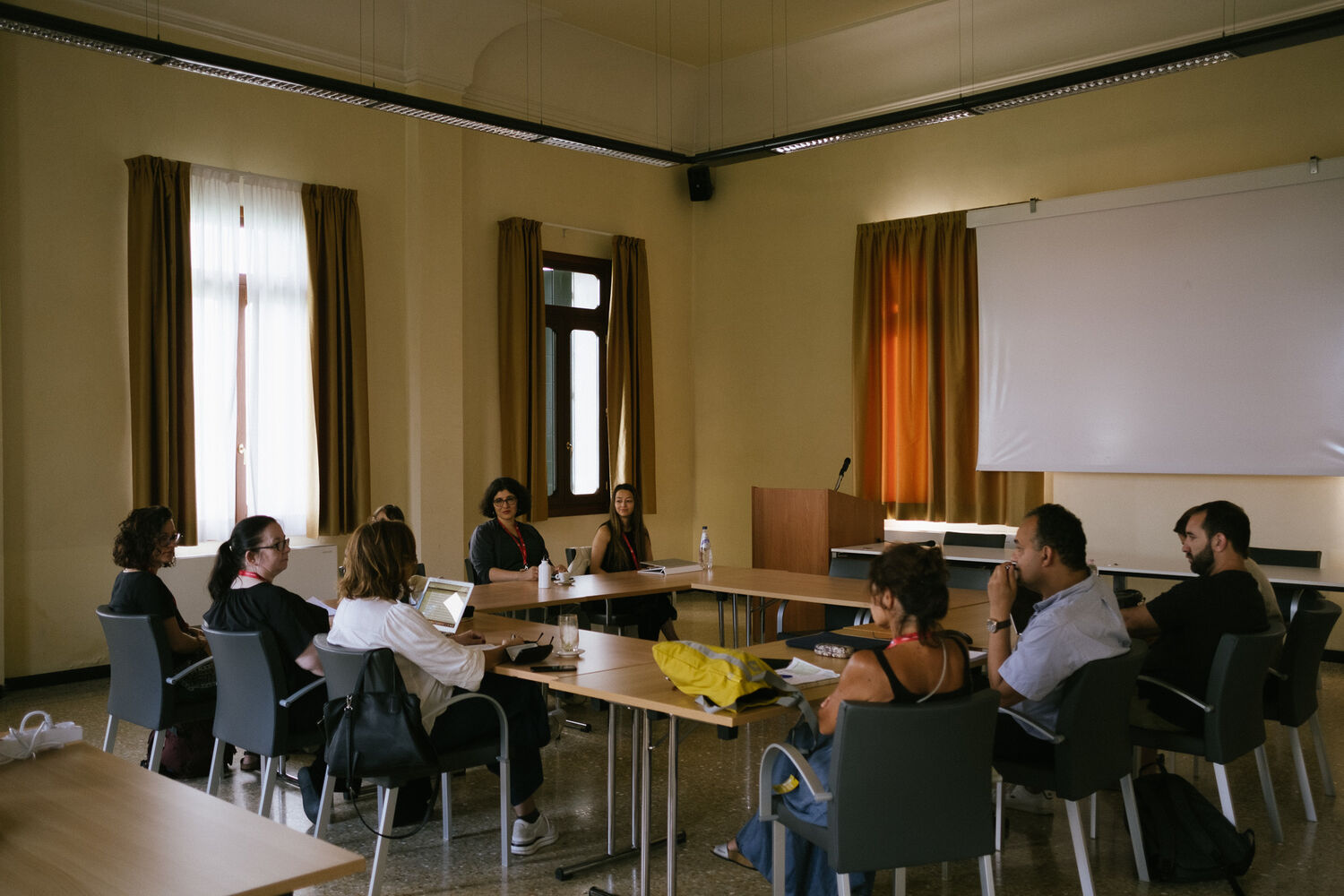
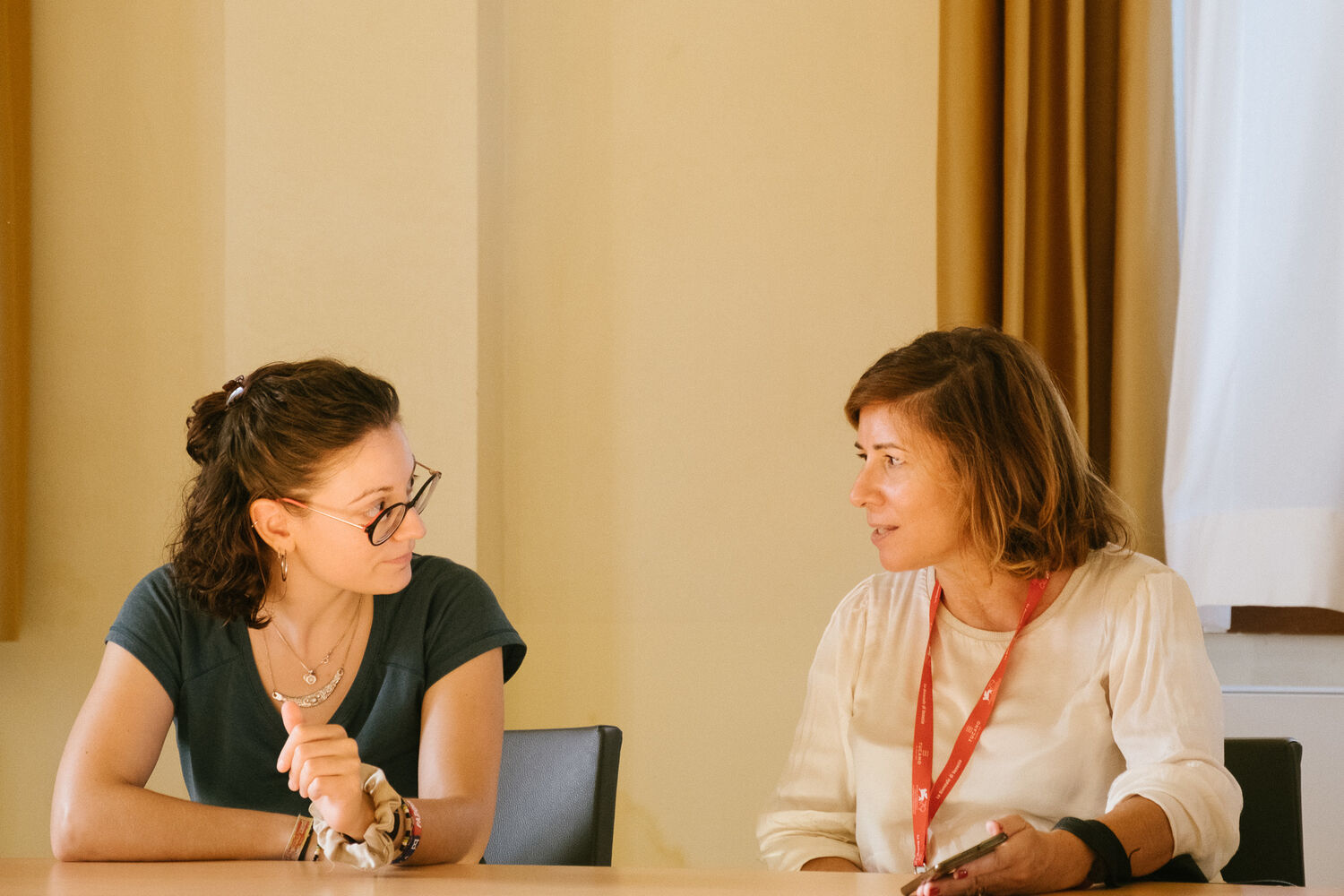
Beyond the professional side of the programme, the Arthouse Cinema Training reinforced the team, participants and trainers alike in the idea that the problems faced individually exist on an internationally – but they can also be tackled at this higher level.
The training has been realised thanks to the support of Creative Europe MEDIA programme, the CNC – Centre national du cinéma et de l’image animée, the FFA - Filmförderungsanstalt and the Direzione Generale del Cinema of the Italian Ministry of Culture. A special thanks also go to San Servolo Servizi, the long-time partner of the training, the national arthouse cinema associations AFCAE, AG Kino and FICE, as well as MUBI, joining the ranks of sponsors in recent years.
Photos by Manuele Sangalli
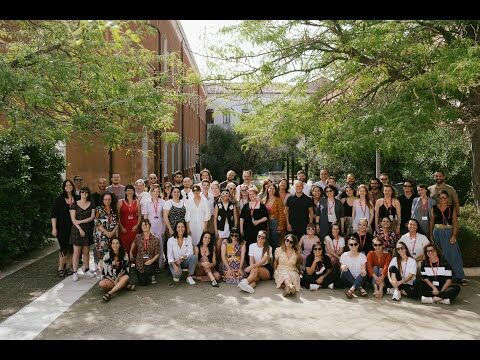
By playing the video, you accept YouTube's privacy policy.
